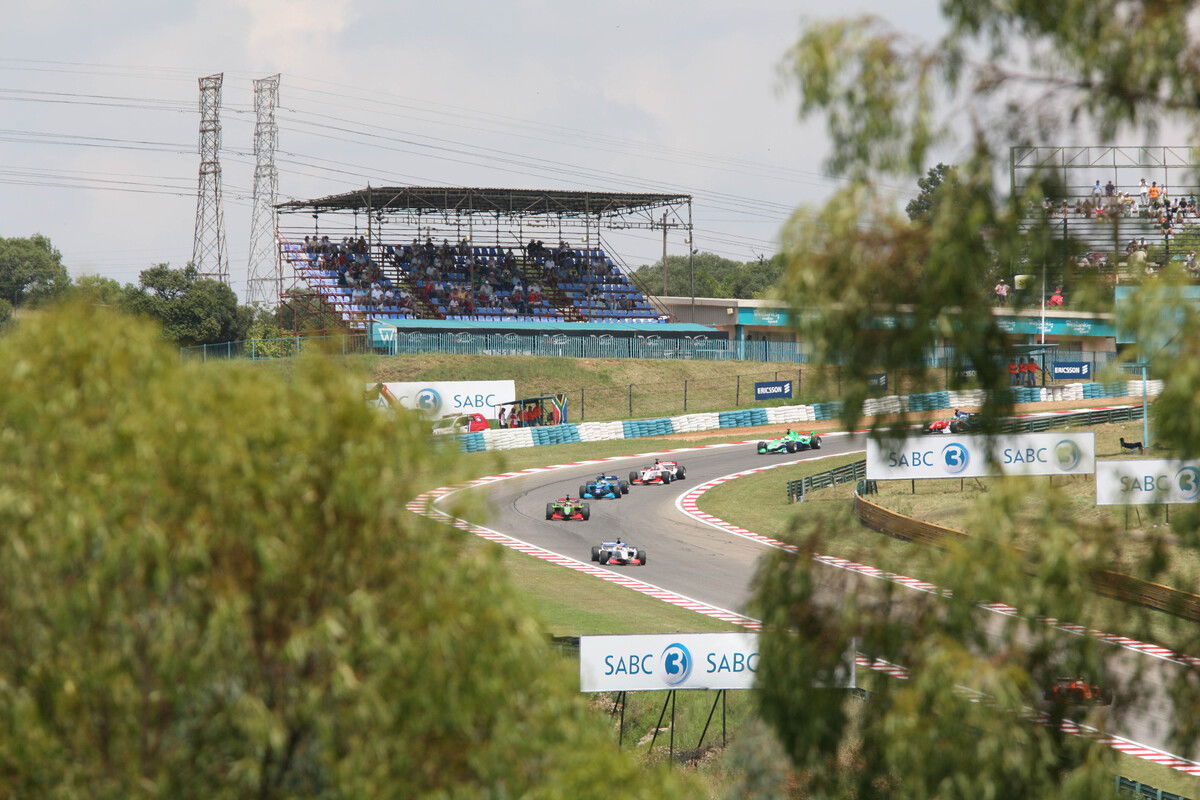

South Africa has been mentioned as a potential destination for Formula 1 in future by Liberty Media boss Greg Maffei.
F1 has long held ambitions to host a race on the African continent, which is notable for its absence from the world championship.
The last South African Grand Prix was held at Kyalami in 1993.
Only last June plans to return to South Africa were abandoned due to the political situation in the country after a refusal to denounce Russia’s invasion, and ongoing war with Ukraine.
That project picked up from a previous effort which was unable to secure financing for the event.
However, according to Maffei, interest in an F1 return to the country remains.
Speaking as part a Goldman Sachs Communacopia + Technology Conference, the Liberty Media CEO highlighted strong interest from new promoters as a lever to drive the financial growth of the F1 business.
“You can see, if we continue to drive viewership, we’re going to continue to drive increases in the what we get paid in media rights,” Maffei explained.
“We continue to see increased interest in from promoters who want it; South Korea, Thailand, Rwanda, South Africa all want to race.
“The opportunity to bring races to those places at attractive prices for us is real.
“And the pressure we’ve created, the success of Vegas in terms of creating a high end experience, the success of Miami, all of that, has raised the bar for all of our promoters, and they’re all expanding.”
Under Liberty Media ownership, Maffei claimed attendance has risen from 3.8 million event attendees in 2017 to 6 million last year – noting the increased calendar in that time.
That event increase, which sees F1 take in a record 24-race calendar this year, has been a significant contributor to the financial growth of the business.
F1 derives income from three main pillars; hosting fees, television rights, and a combination of trackside advertising, corporate hospitality, and other licensing.
By increasing the number of races, Liberty Media pulls in proportionally more from hosting fees and can command stronger television deals too. On top of that comes advertising and hospitality sales.
In many locations, including Australia, Miami, Mexico City, United States, Las Vegas, and Abu Dhabi, promoters employ Ticketmaster as its ticketing platform.
Primarily owned by Liberty Media, the fees associated with ticket sales vias Ticketmaster add another indirect revenue stream into the broader business.
An increase in events, and fan attendance, has seen promoters reimagine their events in many ways, with a greater focus on experiences and high-end offerings.
“They’re finding ways to change to make it more of a premium experience, on top of the growth, and that enables us to get a better price out of them, get more money out of them, because it’s attractive for them as well,” Maffei reasoned.
“And then lastly, sponsorship, certainly for ‘25 and ‘26 I feel big tailwind.
“The fact that we’ve grown the audience and driven it younger is something that definitely appeals to our sponsors as well.”
The limiting factor for Liberty Media now, however, is that the event limit has been reached.
Where it was previously able to simply add events, it must now explore alternative avenues to raise revenues.
That includes putting greater pressure on existing promoters to sign higher value deals and negotiate stronger broadcast agreements.
The latter relies in the sport continuing to attract new audiences which in turn is linked to the on-track allure of F1.
A key consideration in broadcast agreements is fragmentation of the market, and the accessibility of the sport in the face of streaming services globally.
In the United States, ESPN currently holds broadcasting rights in a deal set to expire next year in a market where other high profile sports such as the NBA have moved onto streaming platforms.
“We have interest from streamers, we’ve had in the past,” Maffei confessed.
“What’s the breadth of their platform?
“We’re relatively unique among sports that at the league level, we have a very important sponsorship business, and so we want breadth. It’s important for that sponsorship business
“Relatively unique in that we’re still on the right side of growth, much more than many other sports who’ve had lagging numbers in terms of their TV audience or their growth compared to us.
“And so we definitely wanted to see probably a shorter deal, unless it’s particularly attractive.
“We have our own F1TV product; how does that get incorporated?
“That’s been something that’s been very powerful for our hardcore fans. Is that something that gets subsumed? Is it something that’s a part? How much are we on linear versus that?
“All those questions I think are open.
“The NBA was very fortunate in terms of when they timed their deal, what was going on in the marketplace, what the needs of some of the bidders was, what the motives of some of the bidders.
“It was very favourable for the NBA, and they capitalised on that. We’ll see if we’re as smart and as lucky.”




















Discussion about this post